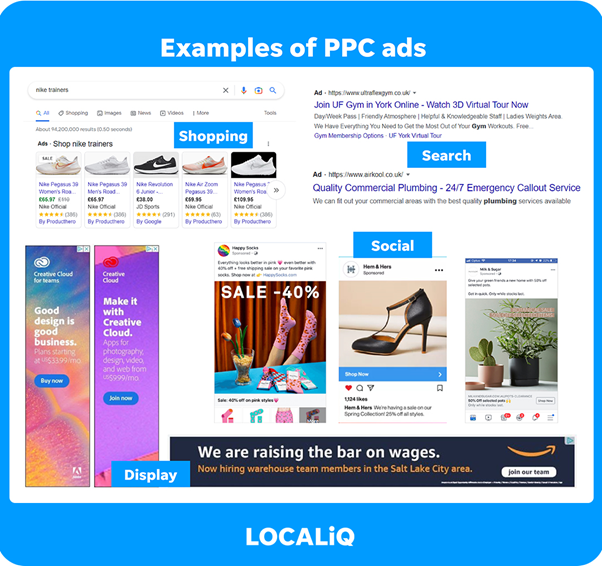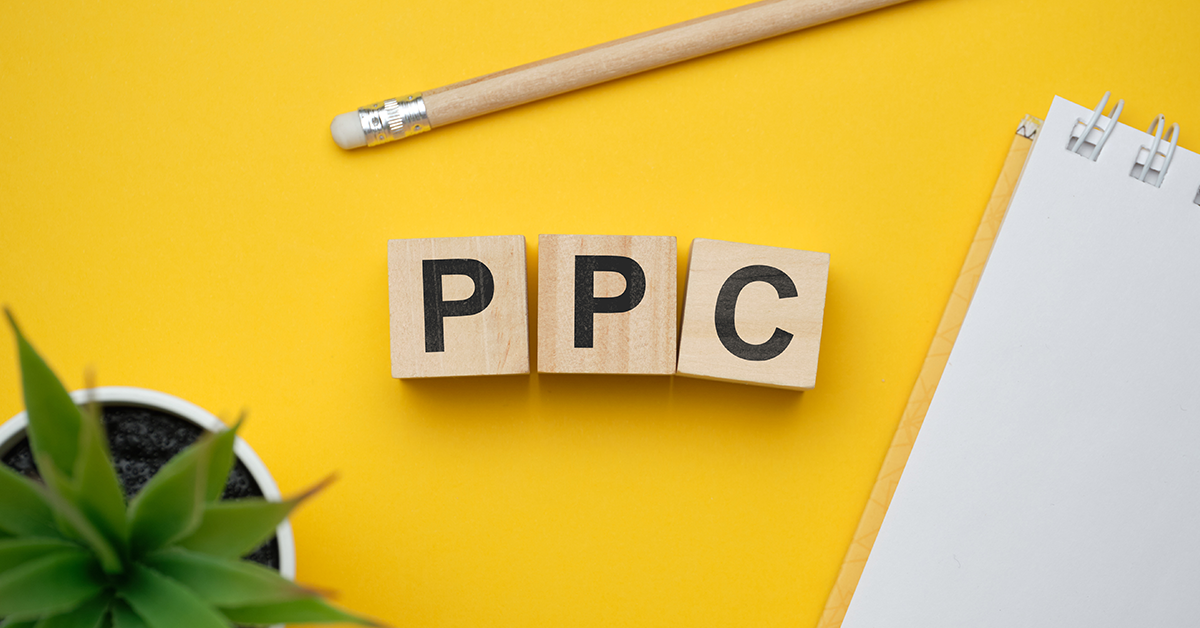PPC and CPC are two important digital marketing models which are interconnected. These terms can be used interchangeably because they are closely linked, however, they are not the same.
In this blog we’ll define CPC and PPC and describe how they differ to help you execute your digital marketing strategy successfully.
What is PPC?
Pay-per-click (PPC) is a marketing method that uses sponsored listings and adverts to drive traffic to a website. In this model, advertisers pay a fee each time someone clicks their ad hence the name ‘pay-per-click’.
Types of PPC:
- Paid search marketing: the most common type of PPC advertising and the most common search engine marketing (SEM) technique. This type of PPC is conducted solely through search engine platforms.
- Social media advertising: PPC ads on social media are very effective because it doesn’t require the customer to conduct a search to see your ad.
- Display marketing: these are the banners, images, or text ads within a website that are typically based on your previous searches.
- Affiliate marketing: a lot of brands use PPC marketing for affiliates, allowing them to earn money when users click on their individual profile or personal page.
Examples of PPC ads

How does it work?
PPC is a measurable and controllable marketing tactic in comparison to more traditional forms of advertising. PPC ads work based on keywords. Advertisers can bid on words or phrases that, when searched, will display their advertisement. With PPC, you don’t pay for the ad on the SERP directly, instead, you pay each time someone clicks on that ad to get to your website.
Where your advert ranks on the search results page is heavily dependent on your keyword bidding strategy. We recommend conducting effective keyword research to find what terms and phrases your audience often search for and then bid on the most relevant ones.
There are many benefits to using PPC, you can generate quality leads, find out more about your audience and increase your online visibility to make your brand stand out. However, PPC advertising does have its limitations and risks.
Learn more about the advantages and disadvantages of Paid Search Advertising.
What is CPC?
CPC stands for Cost-Per-Click, which is the actual price you pay for each click in a PPC campaign. Basically, CPC is the financial metric used to measure the cost of each ad click.
How Do You Calculate CPC?
To determine the CPC of your PPC campaign, simply divide the total cost by the number of clicks.
Total Money Spent ÷ Total Clicks = Cost Per Click
For example, if your campaign cost £100 and received 80 clicks, your CPC is £1.25.
How does it work?
When your PPC campaign is set live you can use CPC to measure the relevancy and efficiency of your ads. The more clicks you receive the better. Your CPC will lower as you generate more clicks than what you paid for, which is an indication that your ads are working and performing well.
Depending on the advertising network you are using your CPC will vary. This is because individual platforms calculate CPC using different components.
Google Ads uses the following components to calculate CPC:
- Maximum bid
- Ad Rank
- Quality Score
Social media platforms use the following components to calculate CPC:
- Social media platform
- Bid amount
- Ad relevancy
- Ad placement
Why is CPC important?
The CPC is a vital metric in PPC campaigns because it allows you to monitor and gauge how well your ads are performing.
CPC is crucial for marketers because it helps you:
- Get a clear picture of your ad click costs
- Benchmark your ad campaigns against your competitors
- Identify which ads, ad groups, and ad campaigns deliver the best results/ROI
Differences between CPC and PPC
People are often confused between the terms PPC and CPC because they are closely connected, however, as we have established these terms are not the same.
PPC and CPC both play a key role in your digital marketing campaign. It is not a case of using one or the other as you essentially cannot have one without the other.
All you need to remember is PPC is the marketing approach and campaign type, whereas CPC is the financial metric used to measure the cost and performance of the campaign.
At LOCALiQ we take the time to understand your business, creating the most cost-effective paid advertising campaign for your budget – ensuring your paid ads appear in front of the right people.
Our team of digital marketing specialists provide you with expert marketing support – from PPC campaign management and professional SEO and content marketing services, to paid social, digital display advertising and much more.
Get in touch to find out how to get the best results from your campaigns.






